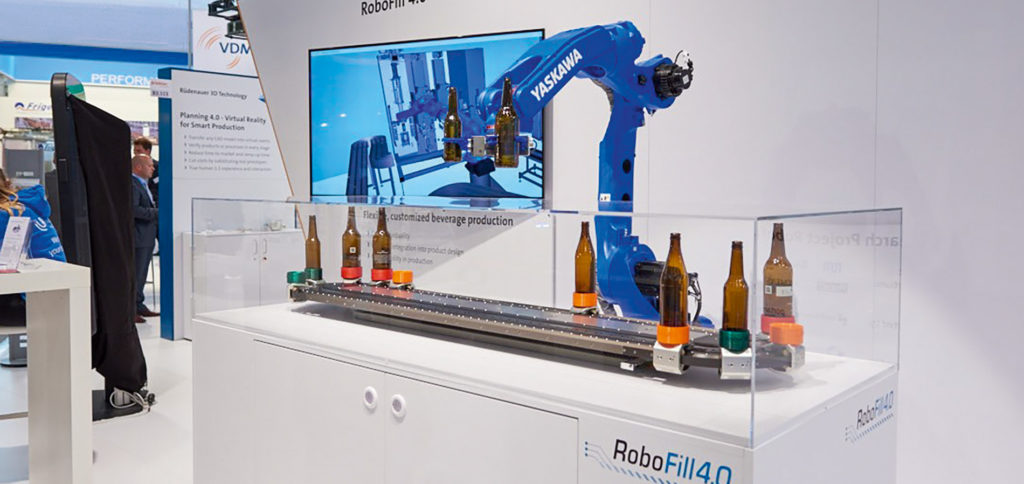Bottling on demand: are personalized beverages a sure-fire hit?

These days, pretty much everything we need in life can be easily ordered from the comfort of our homes or even from our phones while we’re out running errands. Online marketplaces are popping up left, right and center. The supply process could hardly get any easier. Yet all too often the wide range of products available no longer seems to be enough for consumers. They’re after products specifically tailored to meet their needs. For the nonalcoholic beverage industry, this will translate to a sharper focus on highly personalized drinks in the coming years. And many consumers will gladly shell out more for them. There is currently a lot of hype in the industry surrounding “bottling on demand” – a term used to describe this movement. And within this movement, the RoboFill 4.0 project has been setting new benchmarks.
Bottling on demand takes an important leap forward with RoboFill 4.0
RoboFill 4.0 is a robot-based bottling concept for preparing personalized beverages. It was developed as part of a research project that was initially only planned to run from 2015 to 2018, but has since been extended.
In addition to the chairs of Brewing and Beverage Technology and of Food Packaging Technology at the Technical University of Munich (TUM) and the Fraunhofer Research Institution for Casting, Composite and Processing Technology IGCV from the Fraunhofer Institute for Machine Tools and Forming Technology, the project team has also included supply companies working in the beverage industry.
“The idea was to develop an innovative and flexible concept that could be expanded with additional modules to produce personalized and customized beverages in extremely small production runs.”
Christoph Neugrodda, a research associate for the Chair of Brewing and Beverage Technology of the TUM, had the following to say about the scope of the project: “The idea was to develop an innovative and flexible concept that could be expanded with additional modules to produce personalized and customized beverages in extremely small production runs.”
A progress update on the project was presented at drinktec 2017. The RoboFill 4.0 demonstration facility at TUM’s Chair of Brewing and Beverage Technology was commissioned at the end of 2018. According to Neugrodda, all autonomous facility components are intelligently interconnected as cyber-physical system components. As such, the physical bottling facility also has a digital twin to make sure all components are able to communicate with each other, with the customer and with the facility’s operator.
In terms of bottling technology, Krones contributed the necessary handling modules and equipped the filling stations with new technology capable of mixing a base beverage with up to three additional beverages directly at the point of bottling. As a rule, the additional drinks can account for a maximum of 50% of the total volume of the bottle.
The project’s main focus was to find a way to bottle beer-based mixed drinks in an adaptable way, but according to the company, the technology is also suitable for the flexible bottling of any beverages that share the same main component. As such, bottling on demand makes it possible to put together customized pallets of selected filled bottles that feature a personalized design and boast product tracking. To top it all off, production can be managed completely autonomously.
Will you someday be able to personalize a beverage to match your genetic profile?
Compared with the processes used in the past, bottling on demand sounds like it will offer a lot more flexibility. However, despite all the euphoria surrounding this “scientific milestone in bottling,” as the journal Brauwelt put it, the question remains: will this level of flexibility be enough for consumers in the future?
In short, the drinks would be designed to support each consumer’s particular healthy diet.
They may be able to mix their own personalized beverage from several different products, but will this really give them the kick they’re after?
An earlier article on this blog entitled “Trends: The non-alcoholic beverage industry in 2038” featured the “Living 2038” study released by the digital retailer QVC. In this study, the majority of survey respondents were of the opinion that, in the future, nutrition will be automatically tailored to suit personal needs. The word “automatically” is really the key word here though. According to the study’s principal investigator Professor Wippermann, there is already some momentum behind the idea that our DNA could provide the key – and food and drinks could be tailored to our genetic profile.
In the world of nonalcoholic beverages, this could take the form of companies bottling personalized beverage formulas based on individuals’ DNA and/or possibly based on other personal analyses such as an intestinal microbiome analysis. In short, the drinks would be designed to support each consumer’s particular healthy diet. This is where biotechnology firms such as 23andMe come into play: You can already pay to take genetic tests that are then used to create personalized nutritional plans.
The cosmetics industry is leading the way
Right now, the scenario may seem a long way off, but it might actually be more tangible than you’d think. For example, you only need to look at the cosmetics industry to see that personalized skin cream is already being churned out by kiosks that function as “mini beauty production plants.” Viktor Balzer, a scientist at the Fraunhofer Institute for Manufacturing Engineering and Automation IPA, and Lars Rüther, a molecular biologist at Dermatest, recently launched this kind of cream through the company Skinmade. The skin cream is already available at three Douglas branches in Frankfurt, Hamburg and Sindelfingen. Skinmade Personal Skin Care is expected to be available in all major German cities by the end of 2019.
In light of this development, many manufacturers of nonalcoholic beverages may now start mulling all this over and asking themselves whether it might be worth familiarizing themselves with the idea of personalized beverages and the corresponding scenario – it could help them to explore future options for their companies early on and perhaps assume a leading position in the personalized nonalcoholic beverage market in the near future. A good place to start could be getting to grips with RoboFill 4.0 in detail and the related bottling on demand process.
